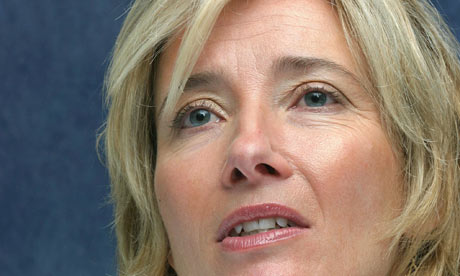During the last month, Academy Award Winner Emma Thompson is quoted to have said that Exeter is very ‘white and middle class’ after her adopted Rwandan son, Tindyebwa Agaba, experienced racism in his first year at the university. He also alleges that the subject matter on his Politics and International Relations degree, when referring to the developing world, was inaccurate depicting it as diseased, war-ravaged and squalor-ridden.

Emma Thompson urges against racism and intolerance
Thompson said that BNP leader Nick Griffin would be comfortable living in Exeter due to its lack of racial diversity. The university said that they supported him whilst these problems emerged and noted that he went onto enjoy the remaining two years at Exeter. The International Student Barometer voted Exeter in the top five safest campuses for international students in the UK. A spokesperson from the university said that Thompson has spoken well about the universities efforts to encourage social cohesion and repel racism. Out of 18,000 staff and students there have been only five incidents of reported racism on campus this year. It goes without saying that there are bound to be many unreported incidents. Thompson, herself, has visited the University and led workshops and engaged in debates. She urged Exeter students to give themselves small goals to stamp out prejudices.
It seems easy to dismiss her view on the basis that it is just purely isolated incidents. She is right that people might think nothing can be done about encouraging a more racial diverse population at Exeter but small steps are achievable. A study published last month based on 1.8 million students living in the UK undertaken by the Equality Challenge Unit found that white students do better in higher education than their Asian or black peers.
A group of London Metropolitan University Muslim students were subjected to racist attacks in November, three people who tried to intervene were stabbed as a group of thirty black and white young people attacked the Muslim students. This followed an earlier attack of a Muslim on their way to a prayer room. The university described these incidents as isolated and police are said to be taking the attacks very seriously. Racist offences have gone up by 54% in the last year in Islington and have risen 6% across the capital.
Race equality needs to be addressed and without addressing it, racism could spread in universities and the attainment gap could continue to grow.



